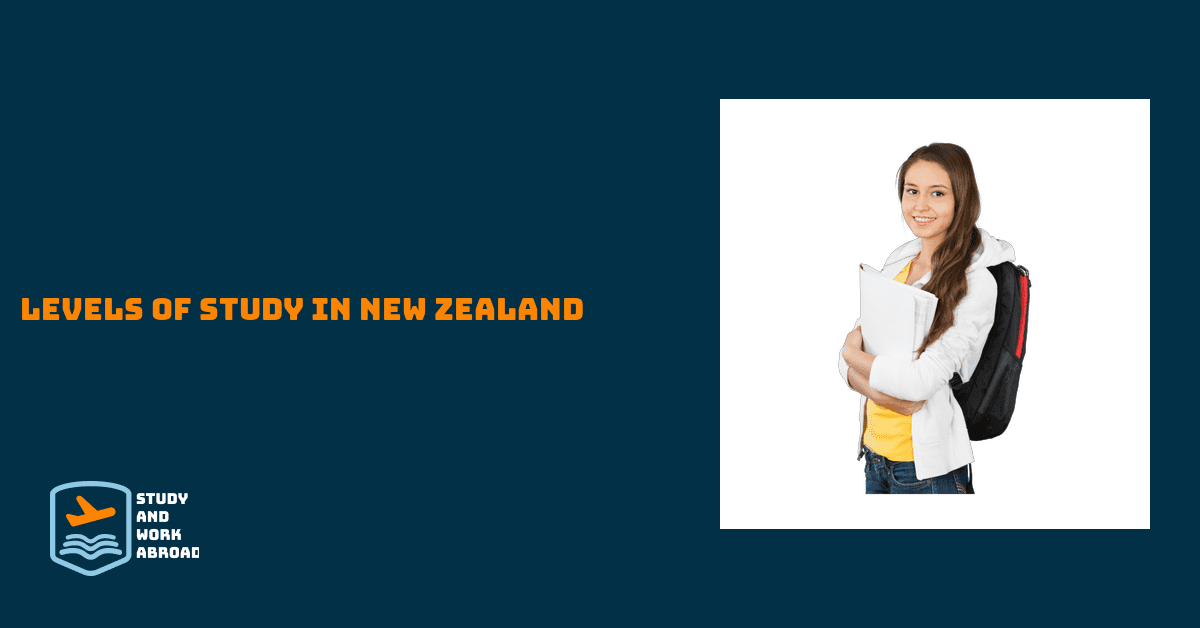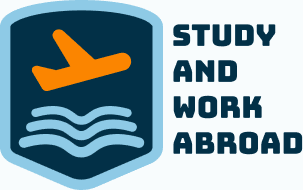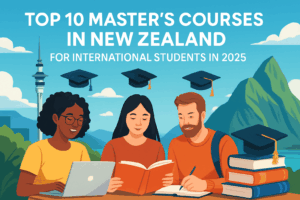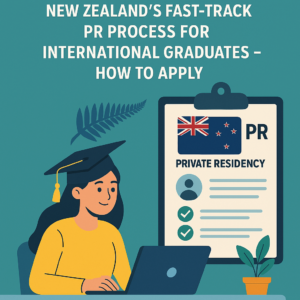Call Us:+91-9920234749, +91-9833420909 info@studyandworkabroad.in

Levels of study in New Zealand
Education level in New Zealand is a three tier structure consisting of primary level, secondary level, and tertiary level at polytechnics, and universities. Acquiring trade certificates, bachelor & master degrees, and diplomas, equaling to the educational level of New Zealand will help to earn points for qualifying for work permit or residence permit in New Zealand.
Basically, there are ten study levels in New Zealand, certificate courses being the lowest level, and doctoral degree being the highest.
- Levels 1 to 4 are Certification courses
- Levels 5 & 6 are Diplomas If a student has completed his +2 (that is 12th standard), he qualifies to study at level 5 and 6 over 2 years and on successful completion of the same they can obtain the Post Study Work Visa
- Level 7 consists of Bachelors degree, Graduate diplomas and Certificates. If a student has completed Bachelors in any field in India, they qualify for the Level 7 Graduate Diploma to be done in 1 year and on successful completion of the same they can obtain the Post Study Work Visa
- Level 8 includes Postgraduate diplomas, Certificates and Bachelor degrees with honours. On successful completion of the Level 8, they can complete the Masters over another 1 year.
- Level 9 is of Masters Degrees. There are some Masters degrees (in various fields) that can be completed in 1 year. A student can qualify for the same by proving that they have managerial work experience in their field post completion of Bachelor’s degree
- Level 10 is Doctoral degrees
A certificate will have minimum one third of the time of a full time study. However, this can also be covered over a number of years as part time study. All tertiary institutions offer certificate level courses. A national certificate indicates the skills of the candidate in a particular work field, for instance it tells that a chef is a qualified chef. A national certificate can be acquired while on the job through apprenticeships or when in defense forces.
A diploma generally requires a one year full time study, and occasionally can be studies as part time also. Diplomas can be acquired as a follow on after a certificate and can also be a standalone qualification. Tertiary institutions offer diploma courses. Graduate diplomas and certificates are given for those who have a Bachelors degree, or for those who have adequate experience in a particular field. Graduate diplomas are offered by polytechnics, wānanga, colleges, and universities.
Bachelor’s degree is an undergraduate degree, which needs three years of full time study or in some cases part time study over a period of years. These degrees are awarded by universities, wānanga, colleges, and polytechnics. A Bachelors degree with Honours is a one year course following a Bachelors degree or it may be a four years long Bachelors with Honours degree. They are taught in polytechnics, and universities.
A post-graduation course is for those who have completed Bachelors degree, and are awarded by universities, wānanga, and polytechnics. Masters degree is a two years full time, or four years part time advanced degree which can be taken by those who have acquired a Bachelors degree or by one who has relevant experience in a particular field. The programme involves researching on, and writing a thesis based on the research. Masters degree can be acquired from universities, wānanga, polytechnics, and private institutions.
Doctorate which is also called as PhD is the highest and the most advanced university degree. The programme includes doing an advanced research, and submitting a thesis, after which the person is awarded the “Doctor” title. Doctors’ degree can be acquired by one who already holds a Masters degree and is a full time three years course. Adequate experience in the relevant field is also considered as a qualification to take a Doctorate degree. Universities, wānanga, and polytechnics award Doctorate degrees.
Education institutes and organizations in New Zealand are registered with the New Zealand Qualifications Authority (NZQA). So, if the educational institution is using NZQA qualifications, be assured that the courses are assessed and approved to be of high quality. One can get their qualifications assessed by the New Zealand Qualifications Authority, and decide how their qualifications fit into New Zealand levels. This information can be passed to potential employers. Some business organizations in New Zealand may advice regarding what qualifications will be recognized there.
Assessment of NZQA
Having a New Zealand Qualification as per the New Zealand Qualifications Framework (NZQF) will help candidates wishing to gain access into the country. Along with this, a report from the NZQF website is also required. If a person’s qualification is not included in the NZQF website, then a letter from the NZQA is required to determine that a person’s qualification qualifies for points. When an NZQA assessment is needed for an overseas qualification, a pre assessment result should be taken. If one is invited to apply for residence, their qualifications will be fully assessed by NZQA.
Based on the levels of NZQF, one needs to provide evidences in addition to their qualifications if they are invited to apply for residence. The details are as below:
Levels 1 & 2 – No additional evidences are required.
Level 3 – Qualifications must be included in the List of Qualifications, and recognized by New Zealand as an exception.
Level 4 – Full or provisional New Zealand Registration, or NZQA report, or qualifications as mentioned in the List of Qualifications Exempt from Assessment.
Levels 5 to 10 – Qualifications as mentioned in the List of Qualifications Exempt from Assessment, or Full or provisional New Zealand Registration, or NZQA report.
Exploring tertiary study options
Tertiary education is also known are third level or post – secondary education. This is the education following the completion of school secondary education. If one does not have enough qualifications to find a job in New Zealand, they can explore what tertiary study options are available. They can also take up a part time course, meaning they can study and work at the same time.
Polytechnic and technology institutes have certificate courses, diploma or degree courses. They offer vocational and practical study programme. A university bachelor degree takes three or four years for completion, and gives the opportunity to club major and minor subjects. Once the bachelor degree is completed, one can go for a doctoral, or a post graduation/ master degree.
If one has already completed a graduation at their country, and if they have good English skills, then they are qualified for a post graduate programme in New Zealand. The International English Language Testing System (IELTS) is used by most of the tertiary institutions in New Zealand to assess the student’s ability to write, speak, listen and read in English. Princeton Test of English as a Foreign Language (TOEFL) is also used my some tertiary institutions to test abilities in reading, writing, and listening English language. The Pearsons Test (PT) is also accepted as an English requirement.
If one wants to study in New Zealand, they need to meet certain rules and requirements. If the course duration is more than 3 months, then they will need a student visa.



